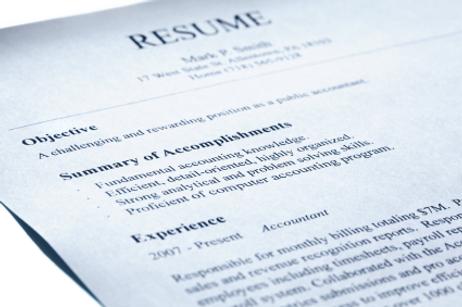What's the Difference Between a Letter of Interest and a Cover Letter?
Depending on the instructions you read on a private school's employment page, you may be directed to send a letter of interest or a cover letter.
- While most businesses use online application forms with automated responses, most private schools still use analog cover letters as part of their employment application processes.
- Successful private schools want to identify exceptional candidates through a comprehensive, hands-on evaluation of their academic credentials and their teaching abilities.
- They also expect a strong commitment to extracurricular leadership, ensuring a new teacher brings both classroom excellence and enrichment expertise.
The ideal teacher demonstrates not only subject mastery and pedagogical skills but also shows enthusiasm for coaching sports or leading an extracurricular activity.
- Some people think a letter of interest is the same as a cover letter.
- However, they are not the same.
- What, then, exactly, is the difference between these two letters, and how do you compose them?
.jpg)
What is a letter of interest?
Strictly speaking, you compose and send a letter of interest when a prospective employer requests you do so.
- In the sense that a letter of interest is a letter written to accompany your resume and other required documentation,
- it functions almost the same as a cover letter.
- But there is a major difference.
- The letter of interest gives a snapshot of what makes you worth interviewing.
Observe the mechanics involved here.
- A staff member will actually read all the applications submitted for the advertised position.
- Depending on the circumstances, there could be dozens of applications to review.
- The school wants the best candidate for the vacant position.
- So, there sits the member of staff who has to open all the envelopes and review them.
- Is he going to have time to read each one in detail? Probably not.
- But he will scan that letter of interest you wrote, looking for features that set you apart from the other applicants.
Your letter of interest can help you make the first cut.
- That gets your application into a much smaller pile of applications.
- Several people will most likely review that group of applications in detail.
- Depending on how the school has set up its hiring process, the group of applications that made the first cut will be further reduced to perhaps 3 to 5 applicants that they would like to interview.
Letters of Interest help with evaluating applications.
- Interviewing professionals for positions in a private school is even more time-consuming because the school is hiring somebody who will be working with children.
- There are background checks and references to be spoken with.
- The school administrators must be sure they have the right candidate for the position.
- If your letter of interest gives any hint that you may not fit their requirements, you will not make that first cut.
- You will never get the interview that you so very much want.
This video shows an example of a letter of interest.
The perfect interview-getting letter of interest
Here are some of the things you have to do to craft the perfect interview-getting letter of interest:
- No typos. No mistakes. None.
- Use a plain business font like Arial or Courier New. 12 points is fine; nothing larger. The ink color is black. Nothing else is acceptable.
- Use plain white paper. 20 or 24 pounds.
- Print your letter of interest and supporting documentation with a laser printer whenever possible. Inkjet printer ink can smudge easily.
- Include a sentence or two that becomes that written picture of you that explains why you are one of the best candidates out of all the applications that they have received.
- The letter of interest is one page. No longer.
There are hundreds of examples of letters of interest and cover letters online. The Balance job search expert Alison Doyle is the authority on such matters. Follow her instructions and suggestions closely.
Other uses for a letter of interest
A letter of interest is often called a 'prospecting letter' in the trade.
- No specific job has been advertised at the school to which we plan to send a letter of interest.
- It just happens to be an institution in which you are very interested.
- You also feel that your credentials and experience might match the school's requirements well.
- So, you are writing an unsolicited letter of interest.
The same rules of the road apply.
Include a sentence or two that becomes the snapshot of you and your skills to make them stand out from all the other applications.
While the school may not have an immediate opening, it might keep your application on file if it matches its requirements.
When do you use a cover letter?
You send a cover letter with your application, resume, and whatever supporting materials the school has specified.
- Think of the cover letter as the first impression that a prospective employer has of you.
- It is a general impression instead of a detailed one.
- As with the letter of interest, perfection is a must. Use sample cover letters as models.
- But do not copy and paste.
- Customize your cover letter to fit your specific requirements.
This video from the Harvard Extension School shows a letter of intent.
More tips and strategies
- Producing a cover letter or letter of interest that will increase your chances of making the first cut takes time.
- Be prepared to write and rewrite your letter several times.
- Don't copy and paste letters that you see on the web.
- Always edit and customize your finished letter to fit the school to which you plan to send it.
- Make sure that your letter is the perfect business letter. No typos. No misspellings. Plain white paper. Standard business fonts.
- Your cover letter must be perfect in every aspect. After all, this is the first impression a prospective employer will have of you.
- Make the cover letter your best impression. If your materials are imperfect, be assured that your competitors' materials will be.
- Don't lie. If you imply that you have specific credentials or experience, you better have them. Schools do their due diligence very carefully.
- The school will include a review of your degrees and transcripts and conversations with the referees you have listed.
- Don't give personal information in a letter of interest or cover letter. Things like age, social security number, marital status, hobbies, and social activities are never included in cover letters or letters of interest.
The most important advice I can give you is to read the instructions carefully before applying.
- Follow them to the letter.
- This is even more important if you are asked to submit your application online.
- Why? Because you will not have a chance to correct anything after you click the Save and Submit buttons.
- If the online application asks you to write a few sentences about why you would be the ideal candidate for the position, treat it like a letter of interest.
- Create a snapshot of you and why you are the best candidate for the job.
- Proofread. Always proofread. Better yet, have another trusted pair of eyes proofread your letters.
- Impressions are so crucial in cover letters and letters of interest.
Conclusion
Whether you have to write a letter of interest or a cover letter, remember that this document serves as the first impression the school will have of you.
- It could be your key to landing that dream position in private education.
- Take time to craft a compelling snapshot of your qualifications/
- Follow the formatting guidelines meticulously.
- Showcase what makes you an exceptional candidate.
- Your thoughtfully prepared letter could be the difference between making the first cut and missing a valuable opportunity.
Take the Next Step in Your Job Search!
If you're considering a career in private education, we'd love to hear from you! Share your thoughts and questions in the comments section below.
Help Others Navigate the Application Process!
Know someone who's preparing to apply for private school jobs? Share this article with them to help them understand the nuances between letters of interest and cover letters. Click the share buttons below to spread the word on social media or via email.
Questions? Contact us on Facebook, Instagram, and YouTube. @privateschoolreview
#privateschools #privateschoolsnearme #JobSearchTips #LetterOfInterest #CoverLetter #PrivateSchoolJobs #CareerAdvice #privateschools














